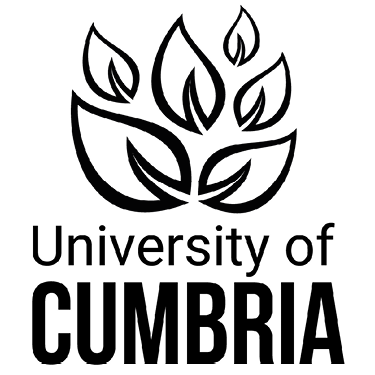Embark on a transformative journey that delves into the complexities of child development and family dynamics. This comprehensive course is meticulously designed to equip you with the essential skills and knowledge for a rewarding career in child and family support. Gain a deep understanding of the key principles and practices involved in supporting children and families. This course covers essential topics such as child development, safeguarding, family dynamics, and multi-agency collaboration. Combining academic study with practical experience, it provides a well-rounded foundation for working in education, social services, or community-focused roles.
You'll explore current challenges and research in the field, developing critical skills in communication, problem-solving, and reflective practice. With a focus on real-world applications, this course is ideal for those who aspire to make a meaningful difference in the lives of children and families, preparing you for a variety of rewarding career paths in this vital sector.
You will need confirmation of a level 4 qualification in childcare, including Maths, English and any science qualifications and supporting statement from employer or current training provider to confirm readiness for study at level 5. Enhanced DBS clearance is required.
There is a potential for non-traditional students to access the programme without these if they have sufficient experience and are able to demonstrate an ability to work at Level 5.
*This course is suject to successful interveiw*
Here’s how to apply depending on your plans:
• If you’re applying to multiple Higher Education providers, submit your application through the Universities and Colleges Admissions Service (UCAS) by the specified deadline for the relevant recruitment cycle. This ensures your application reaches all your chosen institutions efficiently.
• If this College is your only choice, you can begin the process by selecting the “Apply” button at the top of this course page, which will take you to the online application form for a simple and direct experience.
• For detailed information on UCAS applications and deadlines, https://www.ucas.com/applying .
| Study level | Cost | Additional fees |
|---|---|---|
| HE | Please enquire | Course Fee: £6,355.00 *Please note that all fees are subject to change and will be confirmed upon enrolment.* Further information about financial support can be found on our page here: https://northumberland.ac.uk/experience/financial-support/higher-education-financial-support/ Additional costs relate to stationery and travel costs. In addition, students may wish to purchase key texts. It is advised that students obtain a copy of Cite Them Right (12th edition) which can be found at a low cost on Amazon. |
Learning and Teaching:
The programme uses a blended learning approach, combining face-to-face sessions with online and practical work where appropriate. The learning and teaching methods typically used by tutors include lectures, seminars, guest speakers, workshops and tutorials.
A significant amount of personal study time is expected to be undertaken by the student, comprising of background reading, assignment work, preparation for seminars and practical case studies. A social learning community including a peer support programme will further enhance this.
Summative and Formative Assessment:
Assessment tasks are linked to the learning outcomes of each module and are normally completed at the end of the module.
Assessment typically consists of practical and theoretical work. Assessments can include: a portfolio, oral presentation, written work and project work.
You will have formative assessment to help you learn and develop your knowledge and skills and summative assessment on which you are graded.
Continuous assessment is utilised on the programme. Formative feedback is an ongoing process and is delivered via tutorials, group discussion and peer input.
GCSEs at grade 4/C or above in Maths and English, or equivalent, are required for this course.
A placement is required consisting of a minimum of 70 hours across the year, although a minimum of one day per week is advised to maximise learning opportunities and professional development.
As a student on this Programme, there are a range of opportunities to link with industry such as guest speakers and field visits and activities.
In addition to the weekly session that runs from 5:00pm-9:00pm, students are expected to work independently for up to eight hours per week to maximise learning and progression.
To enable students to complete a full qualification in one year - which would usually take two years - extended academic years are applied. This results in the programme running for 38 weeks, from the first week in September through to mid-July.
Sessions run from 5:00pm-9:00pm one evening per week.
Session delivery will take place weekly on a Tuesday evening with additional and more flexible sessions offered throughout the year to enable you to strengthen your skills, develop as a scholar, and to seek additional feedback. The additional sessions will be offered on a face-to-face or remote basis and the frequency will be determined by the needs needs and preferences of students, with a strong emphasis on maximising your potential to succeed and progress.
The aims of this course are to:
- Provide a supportive and responsive learning environment that will enable students with different experiences to develop a flexible and transferable skill set
- Engage students with a variety of learning experiences and build on their skills and knowledge at each of the three levels of the programme, in order to facilitate the development of a critical understanding of children’s social care settings
- Develop the skills, knowledge and understanding required to work in integrated practice settings across children’s social care settings
- Enable students to confidently engage with and support the development of children, young people, families and communities
- Plan, deliver and evaluate projects and interventions that support social action and social justice
- Understand their place within the local, national and global children’s workforce and social care settings
- Engage students in traditional and contemporary debates around children’s social care settings, with an emphasis on developing analytical skills that enable robust evidenced based theoretical challenge
Prepare students for Level 6 study in an allied field; or for employment.
Modules may include:
- Researching and Evaluating Practice
- Equality, Diversity, Inclusion and Anti-oppressive practice through
- The Internet, Media & Society
- Crime and Conflict
- Identity, Personality and Social Justice
- Innovative Approaches to Working with Children and Families
You will receive a timetable to inform you of the schedule at least one week prior to induction
120 credits at Level 5
After completing this course, students can progress to our Level 6 BA (Hons) in Working with Children and Families, further advancing their expertise and career prospects. This pathway opens doors to a wide range of roles in education, social care, family support, and community development. Graduates are well-equipped to pursue careers as family support workers, safeguarding officers, or early intervention specialists, making a meaningful impact in the lives of children and families. With a strong foundation in practical skills and theoretical knowledge, students can also explore opportunities for specialised postgraduate study in related fields.
This is a Higher Education course awarded by the University of Cumbria.
Visit the University of Cumbria website here.

Find out everything you need to know about Northumberland College and our exciting range of courses!
Register for our next open event


Rated Outstanding in all areas by Ofsted
2024

Top land-based college in the North East

100% pass rate for equine management and floristry courses

Our extensive re-development programme will create outstanding new facilities